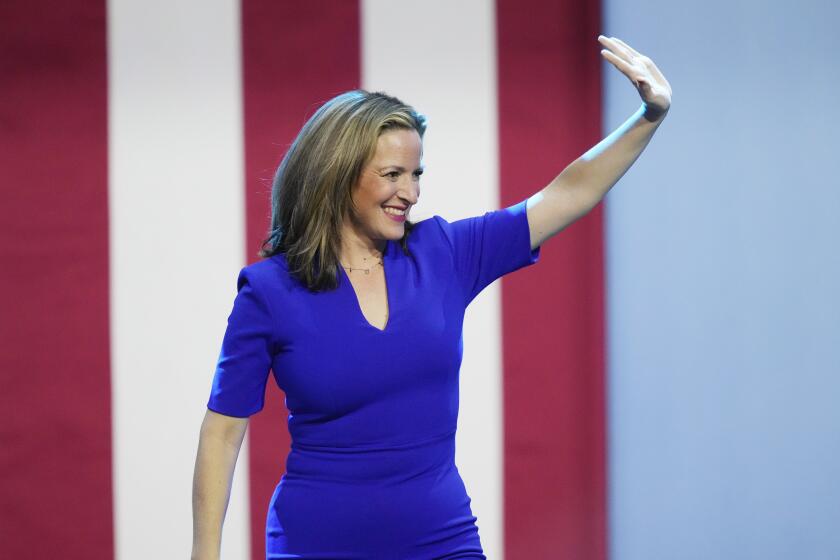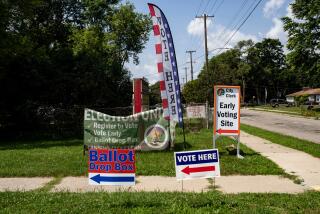Column: Between ‘kitchen table issues’ and the fate of democracy, which side won?

- Share via
As the nation holds its breath and the votes come trickling in, I keep coming back to the end-of-the-campaign words of Rep. Elissa Slotkin, a two-term Democrat who ran for reelection in a tight race in southeastern Michigan.
“I believe that our democracy is the ultimate kitchen table issue,” she told the crowd on a stop in East Lansing in the final week of the race. “In fact, it’s not the kitchen table. Our democracy is the foundation of the home in which the kitchen table sits.”
The metaphor was slightly tortured, but I got her point.
Opinion Columnist
Nicholas Goldberg
Nicholas Goldberg served 11 years as editor of the editorial page and is a former editor of the Op-Ed page and Sunday Opinion section.
For months, Americans have been anxiously waiting to learn (among other things) whether the election would turn on the big, broad, foundational issues facing the country — the fragility of our democracy and institutions, the bitter partisanship turning to vitriol, the violence pulsating just below the surface. Or would voters make their choices based on the so-called kitchen table issues: day-to-day matters like Social Security, jobs, inflation, the economy, crime, healthcare and schools.
The pundits warned, with years of data to back them up, that most people care more about the kitchen table issues, and don’t have time in their crowded, bedraggled lives for abstract, seminar-worthy subjects like “Whither Democracy?” while they’re struggling to make ends meet.
Slotkin’s point, though (or my reading of it, anyway) was that the two are inextricable, and that you can’t count on the daily benefits of American prosperity, jobs and stability if you allow the underlying pillars of democracy and rule of law on which society rests to crumble.
That’s my view too.
Rick Caruso edges slightly ahead of Rep. Karen Bass in the race to become the 43rd mayor of Los Angeles. But the race is still too close to call.
So what was the upshot? Well, it’s too soon, I’m afraid, to take the full measure of this chaotic election. But it’s worth noting that Slotkin, a moderate Democrat and former CIA officer who made the preservation of democracy and the dangers of election conspiracies her central themes at the close of her race, won her election by a hair.
And the giant “red wave” of Republican victories did not materialize, though which party will control the House and the Senate remains uncertain.
Slotkin ran in a swing district against a Republican election denier named Tom Barrett. In the final run-up to election day, she took an endorsement from Rep. Liz Cheney (R-Wyo.), who spoke at a campaign event about “ensuring the survival of the republic.”
And Michigan voters seem to have taken that warning to heart.
Republicans who backed Trump’s efforts to overturn the 2020 election lose key races for positions in which they would have overseen elections. But in some areas, they’re poised to win.
Nationwide, an Associated Press survey of 94,000 voters found that, as Republicans had hoped, inflation was the top concern of voters. But almost half of voters also said that the future of democracy weighed heavily on them. In preliminary results from an ABC News exit poll, two-thirds of voters said democracy in the United States was “threatened.”
All I can say is, I’m glad they noticed.
More to Read
A cure for the common opinion
Get thought-provoking perspectives with our weekly newsletter.
You may occasionally receive promotional content from the Los Angeles Times.














